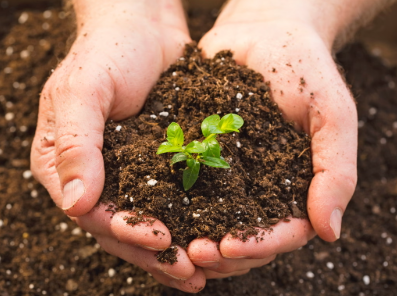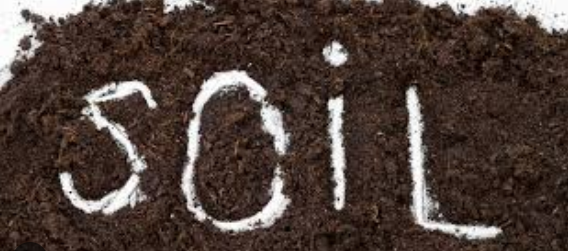The Importance of Soil in Plant Growth: Choosing the Best soil for a Home Based Plant business

When it comes to growing healthy plants, one of the most crucial factors to consider is the growing medium. In most cases, this means soil. The quality and composition of the soil directly impact plant health, as soil serves as the primary source of nutrients, water retention, and aeration. If you want to achieve strong, thriving plants, understanding the role of soil and its various components is essential.
Why Soil Quality Matters for Healthy Plants
Soil is more than just dirt—it is a complex ecosystem that supports plant life. It provides essential nutrients such as nitrogen, phosphorus, and potassium, all of which contribute to plant growth, flowering, and fruiting. Without proper soil composition, plants may struggle to absorb these nutrients, leading to stunted growth, weak stems, and poor yields.
Another critical factor is soil structure. Well-aerated soil allows roots to breathe and expand, while compacted or poor-draining soil can suffocate roots and hinder growth. The right soil also maintains proper moisture levels, preventing issues like root rot caused by overwatering or dehydration from excessive drainage.
The cost of The Best Soil for a Home Based Business
For many gardeners and plant sellers, the cost of soil is a significant consideration. High-quality soil can be expensive, but investing in the right soil mix can lead to better plant health and increased yields, ultimately saving money in the long run.
Alternatively, some growers choose to create their own soil mix by blending compost, peat moss, perlite, and other organic materials. While this option can be more cost-effective, it requires time, effort, and knowledge to ensure a balanced composition.
When determining whether to buy or make your soil, consider:
- The number of plants you are growing
- The availability of organic materials for composting
- The specific needs of your plants
- The long-term cost benefits
Essential Soil Additives for The Best Soil For a Home Based Plant Business
Soil alone may not always provide all the necessary nutrients for rapid and healthy plant growth. That’s where soil additives come in. These materials enhance the soil’s ability to support plants, improving nutrient availability, aeration, and moisture retention.
Some common soil additives include:
- Compost – Enriches soil with organic matter and beneficial microbes.
- Perlite – Improves drainage and aeration, preventing compacted soil.
- Vermiculite – Retains moisture and essential nutrients.
- Bone Meal – A natural source of phosphorus for strong root development.
- Worm Castings – Provide a slow-release source of nutrients.
- Lime – Adjusts soil pH for plants that prefer alkaline conditions.
- Sulfur – Lowers soil pH for acid-loving plants like blueberries.
Using the right combination of these additives ensures that plants receive the nutrients they need to grow quickly and produce vibrant foliage, flowers, and fruits.

Determining the Right Amount of The Best Soil for a Home-Based Plant Business
While soil quality is important, quantity also matters. Using excessive amounts of soil is unnecessary and can be wasteful, especially for plants that will eventually be transplanted into a garden.
To calculate the right amount of soil, consider:
- The size of the plant’s root system
- The type of container or planting space
- How long the plant will remain in the container before transplanting
A general rule of thumb is to provide enough soil for root expansion without overfilling pots or garden beds. Too much soil can lead to moisture retention issues, while too little can cause root crowding and nutrient deficiencies.
Optimizing Soil for Cost-Effective Plant Growth
If you are growing plants as part of a business, managing soil costs is essential to maintain profitability. Here are some strategies to reduce expenses while ensuring optimal plant health:
- Buy in Bulk: Purchasing soil in larger quantities often reduces the cost per unit.
- Use Local Resources: Consider composting kitchen and garden waste to create nutrient-rich soil at little to no cost.
- Recycle Soil: Reusing and amending old soil with compost and additives can help save money.
- Test Soil Regularly: Soil testing kits help identify nutrient deficiencies, allowing you to supplement only what is needed rather than overusing expensive fertilizers.
- Choose the Right Soil for Your Plants: Different plants have different soil needs, so selecting the appropriate type prevents unnecessary spending on additives.
Selecting the right soil for plant growth is a crucial step in ensuring healthy and productive plants. Whether you are a hobbyist gardener or running a plant-selling business, understanding soil composition, cost factors, and proper additives can make a significant difference. By balancing quality with cost-effectiveness, you can create the perfect growing environment while keeping expenses manageable.
With the right soil and proper care, your plants will not only survive but thrive, producing lush foliage, vibrant flowers, and bountiful harvests. Whether you buy pre-mixed soil or create your own, making informed decisions about your growing medium will lead to long-term gardening success.
How Much Does Bought Soil Cost?
Maximizing Profits with Cost-Effective Potting Soil and Compost
When buying potting soil in bulk, prices can vary widely. On average, a 40L bag of potting soil costs between £8 and £20, meaning the price per liter ranges from 20p to 50p. By setting a selling price of 50p per liter, you can cover costs and generate a small profit while remaining competitive.
To further reduce expenses and improve soil quality, consider amending store-bought soil with homemade compost. Adding organic compost enhances nutrient content, improves soil structure, and minimizes reliance on commercial potting mixes. This strategy allows you to either cut costs or boost profit margins, making it a smart approach for gardeners and plant sellers alike.
For even greater savings, buying bulk potting soil in 100L+ bags or cubic meter loads can significantly lower costs per liter, increasing profitability when selling potted plants or gardening supplies.

Leave a Reply